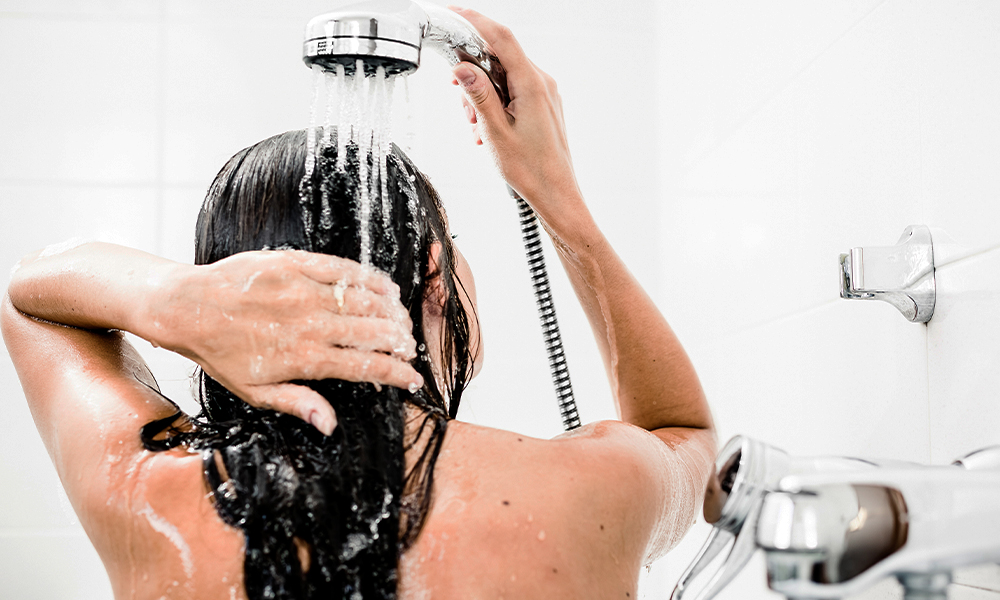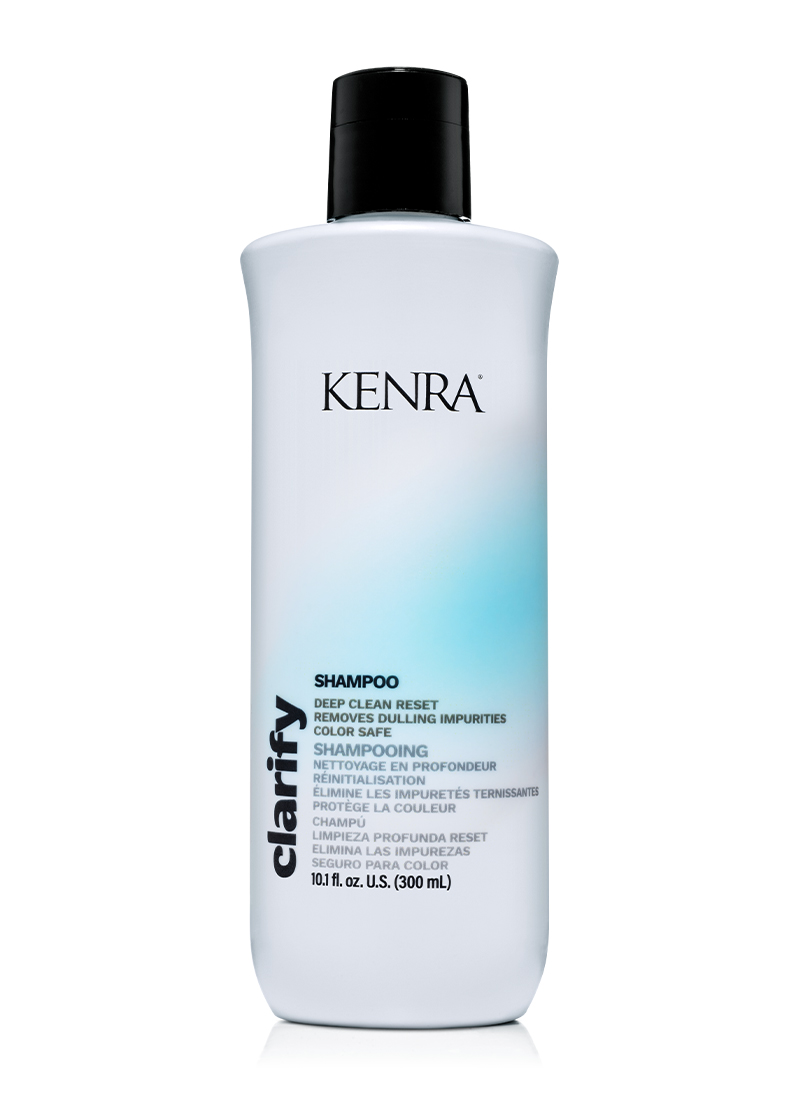How Hard Water Affects Your Hair and What You Can Do to Prevent It

By: Kenra Professional
February 2023

Your colorist knows: Hard water is a common problem that affects many households across the United States. It’s caused by a high concentration of various minerals—calcium and magnesium specifically, in the water supply. The good news? Hard water doesn’t have a significant impact on your health overall, but it can affect your hair and your hair color. In this story, we’ll talk about how hard water can affect your hair and hair color—and what you can do to mitigate its effects.
How Hard Water Affects Your Hair
It Leaves Build-Up
One of the most obvious ways hard water can affect your hair is by leaving behind mineral build-up. When you wash your hair with hard water, the minerals in the water can stick to the hair, leaving behind a film of buildup. This can leave your hair feeling heavy and greasy, and can also make it harder to style. In addition, the mineral build-up can cause your hair to be drier and brittle—which can lead to dullness, breakage, and split ends.
It Makes Lathering More Difficult
Hard water can also affect your hair by making it harder to lather shampoo. Hard water can cause the pH balance of the hair to be disrupted, making it harder for the hair to absorb the nutrients in the shampoo and conditioner. The result? Your hair may not be as clean and healthy as it should be.
It Affects Your Hair Color
If you color your hair, hard water can also affect your hair’s hue. The minerals in the water can cause hair color to fade faster and can even cause your hair to turn brassy or orange. Color can wind up looking dull or uneven.
It Can Cause Irritation
Hard water can even cause scalp irritation, dandruff, and itching. The water’s minerals can create an imbalance in the pH of your scalp which can lead to dryness, flaking and itching—especially for those with sensitive scalps.
Hard-Water Hair Solutions
So, what can we do to mitigate the effects of hard water on our hair?
Use A Clarifying Shampoo
Use a deep cleansing shampoo, like Kenra Clarifying Shampoo. It’s good to do a clarifying cleanse before getting your highlights or single process to remove product buildup from your hair and your scalp. Kenra Clarifying Shampoo gets rid of up to 99% of deposits that can dull your shine, literally and figuratively. It’s a gentle, color-safe formula that works well even for swimmers, in addition to those who live in hard water areas.
Use A Water Softener Or Filter
A water softener removes the minerals from the water supply. You can also use a shower filter, which can help to remove the minerals from the water before it comes in contact with your hair.
Use A Vinegar Rinse
By rinsing your hair with distilled white vinegar after washing it, the acidity of the vinegar will help to remove the mineral build-up and restore the pH balance of the hair. Mix one part vinegar with three parts water and rinse the hair with it after you shampoo.
Be Mindful Of The Water Temperature
Try not to use water that’s too hot when washing your hair, as using hot water can strip your hair of its natural oils—and this can make your hair even drier. It's best to use lukewarm or cool water to wash and rinse your hair.
Hard water can wreak havoc on your hair. It can leave behind mineral build-up, make it difficult to lather shampoo, cause your hair color to fade, and lead to scalp irritation and dandruff. But the solutions above help lessen hard water’s effects, which will help keep your hair looking its healthiest. Shine on!

